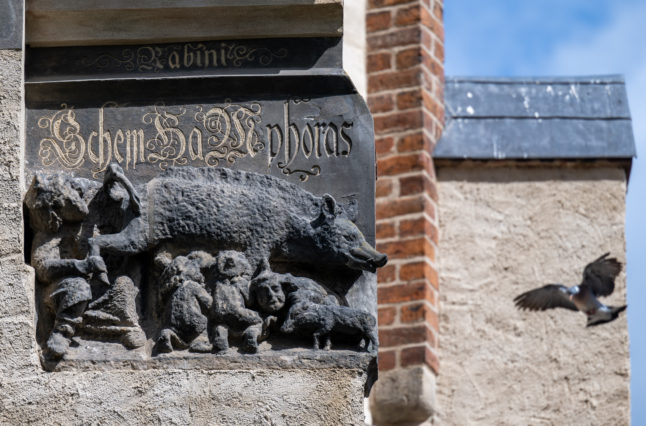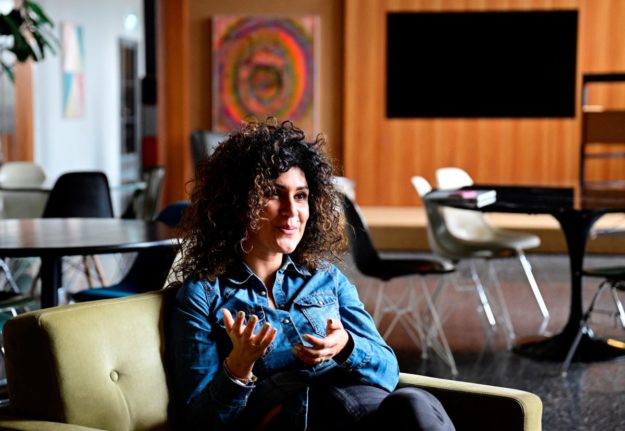Widely known as the “Judensau” (Jews’ sow), the 13th-century bas relief on the church in eastern German town Wittenberg depicts a rabbi peering into a pig’s anus, while other figures suckle milk from its teats.
The hateful symbolism is that Jews obtain their sustenance and scripture from an unclean animal.
A local Jewish man had appealed to the Federal Court of Justice in Karlsruhe after a local court rejected his claim that the sculpture was insulting to Jews and should be removed.
Although the court agreed that the content of the carving was offensive, it found that the church had taken sufficient steps to counter this by installing a memorial and information board.
READ ALSO: Anti-Semitism ‘massive problem’ in Germany, says Jewish leader on terror attack anniversary
The carving was “anti-Semitism carved in stone”, the court said, but the memorial and information board had enabled “clarification and a discussion of the content… in order to counter exclusion, hatred and defamation”.
The president of the Central Council of Jews in Germany, Josef Schuster, said the ruling was “understandable”.
However, he said he disagreed with the court’s reasoning insofar as “in my opinion, neither the memorial nor the information board contain an unambiguous condemnation of the anti-Semitic artwork”.
“Both the Wittenberg church community and churches as a whole must find a clear and appropriate solution for dealing with sculptures that are hostile to Jews,” he added.
Luther’s legacy
Many churches in the Middle Ages had similar “Judensau” carvings, which were also aimed at sending the stark message that Jews were not welcome in their communities.
Another example can be seen at the world-famous Cologne cathedral.
But the importance of the Wittenberg relief is tied to Luther, himself a notorious anti-Semite, who preached there two centuries later.
It was in Wittenberg that Luther is said to have nailed his 95 theses to another church’s door in 1517, leading to a split with the Roman Catholic Church and the birth of Protestantism.
The theologian argued that Christians could not buy or earn their way into heaven, but only entered by the grace of God, marking a turning point in Christian thinking.
But Luther also came to be linked to Germany’s darkest history, as his later sermons and writings were marked by anti-Semitism — something that the Nazis would later use to justify their brutal persecution of the Jews.
The court’s decision not to order the relief to be removed can still be appealed to Germany’s constitutional court.
READ ALSO: German hotel workers probed after singer’s anti-Semitism claim



 Please whitelist us to continue reading.
Please whitelist us to continue reading.
Member comments